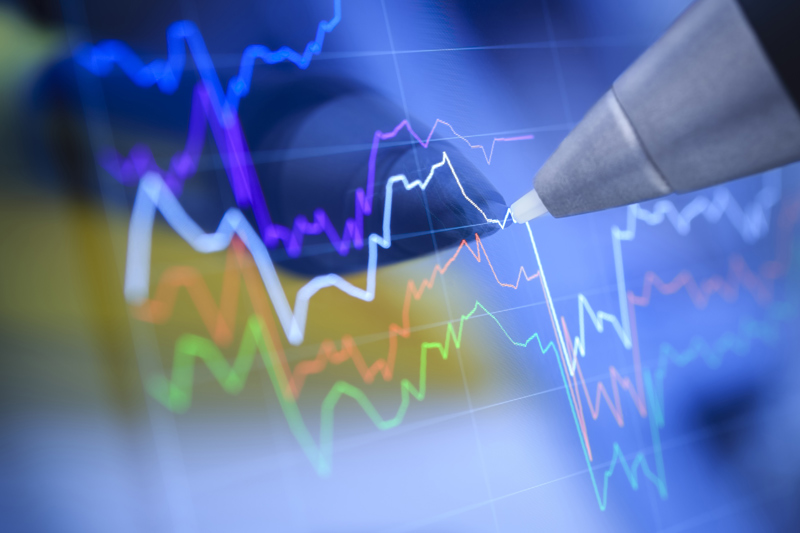By Kathleen Caulderwood - Nigeria could soon overtake South Africa as the largest economy in Africa, but numbers aren’t everything.
In the next few months, the West African country’s National Bureau of Statistics will recalculate its gross domestic product (GDP) to be up-to-date with current market data and prices, which could boost the figure more than 50 percent – the largest on the continent.
Frontier market investors will likely take notice, but for most Nigerians, the number won’t change anything.
“Would it make any difference to the man on the street? No,” said Charles Robertson, Renaissance Capital’s chief global economist. “Does it make any difference to the companies? Not directly, although it might make them more interesting to global investors,”
Nigeria’s current GDP, the value of all goods and services it produces, is about $263 billion, while South Africa is hovering around $384 billion. Its new number, which Robertson estimates might be around 53 percent higher, will make it the 28th biggest economy in the world, and the largest in Africa.
This recalculation, called “rebasing,” is an adjustment that takes into account changes in price and the weight of certain economic sectors, among other factors, and creates a new base year from which these are calculated. Most countries go through the process every five or 10 years to keep the figures up to date. Nigeria’s last rebasing was in 1990.
“When you are computing GDP, you are trying to know the changes that happen in the economy,” Dr. Yemi Kale, Nigeria’s statistician general, told reporters after the original plan to rebase was announced. “Between 1990 and now so many things have changed, some positive and some negative.”
For example, the agricultural sector in the 1990s accounted for about 40 percent of the country’s GDP. But information technology, telecoms and even the "Nollywood" film industry are new segments that barely existed back then, but currently account for a large chunk of the nation’s earnings. Agriculture today accounts for a little over a quarter.
Of course, it’s a complicated process. The National Bureau of Statistics originally announced the rebasing plans in 2012, and the time has been pushed back to February or March of this year.
“Whenever it does happen, I don’t think it’s going to make any kind of short-term impact,” said Shilan Shah, Africa economist at Capital Economics. “Although it is impressive, it doesn’t really change anything on the ground, so to speak, whether in Nigeria or South Africa.”
Given Nigeria’s larger population, South Africans will still be better off in general since their per capita income is currently six times the size of Nigeria’s.
But the major obvious changes will be to the country’s economic indicators. For instance, a higher GDP means that the country’s account surplus – the difference between the value of its imports and exports – will change. A healthy economy usually runs a bit of a surplus, but the new data are likely to lower Nigeria’s surplus amount in terms of its GDP.
“In the long run it’s a good thing,” said Shah. “But then that has to be weighted against the fact that a country like Nigeria with vast oil reserves should be running a much larger account surplus.”
Despite these concerns, the new rates will make Nigeria stand out among its neighbors in sub-Saharan Africa and other frontier markets.
“It’s bigger than South Africa or Argentina, though still not in the G20. That’s going to strike investors as peculiar,” said Renaissance Capital’s Charles Robertson, adding that investors will look at Nigeria as “an obvious place to consider investment when looking at Africa as a whole.”
Emerging markets have become less popular lately, as many of their economies have been slowing down.
“Global investors have become despondent with emerging markets. They’re not that exciting,” Robertson said.
But “Nigeria is part of the frontier story, which is exciting,” he added, citing the country’s high growth rate.
The country’s growing middle class, evolving banking system and regulatory reforms have certainly made it more appealing in recent years. Having the largest economy in the region will certainly help – but investors should still be wary of persistent systemic problems.
“Perhaps the upside for Nigeria is that it will become too important to ignore,” said Samir Gadio, an emerging markets strategist at Standard Bank, from Lagos. But the country is still “significantly underdeveloped,” thanks to problems with basic infrastructure such as roads and electricity, plus high rates of income inequality.
“This negative perception will not dissipate just because of the revision in aggregate GDP,” he said, adding that the per capita rate, i.e. how much the average Nigerian makes, “will continue to trail that of South Africa over the next decades.”
